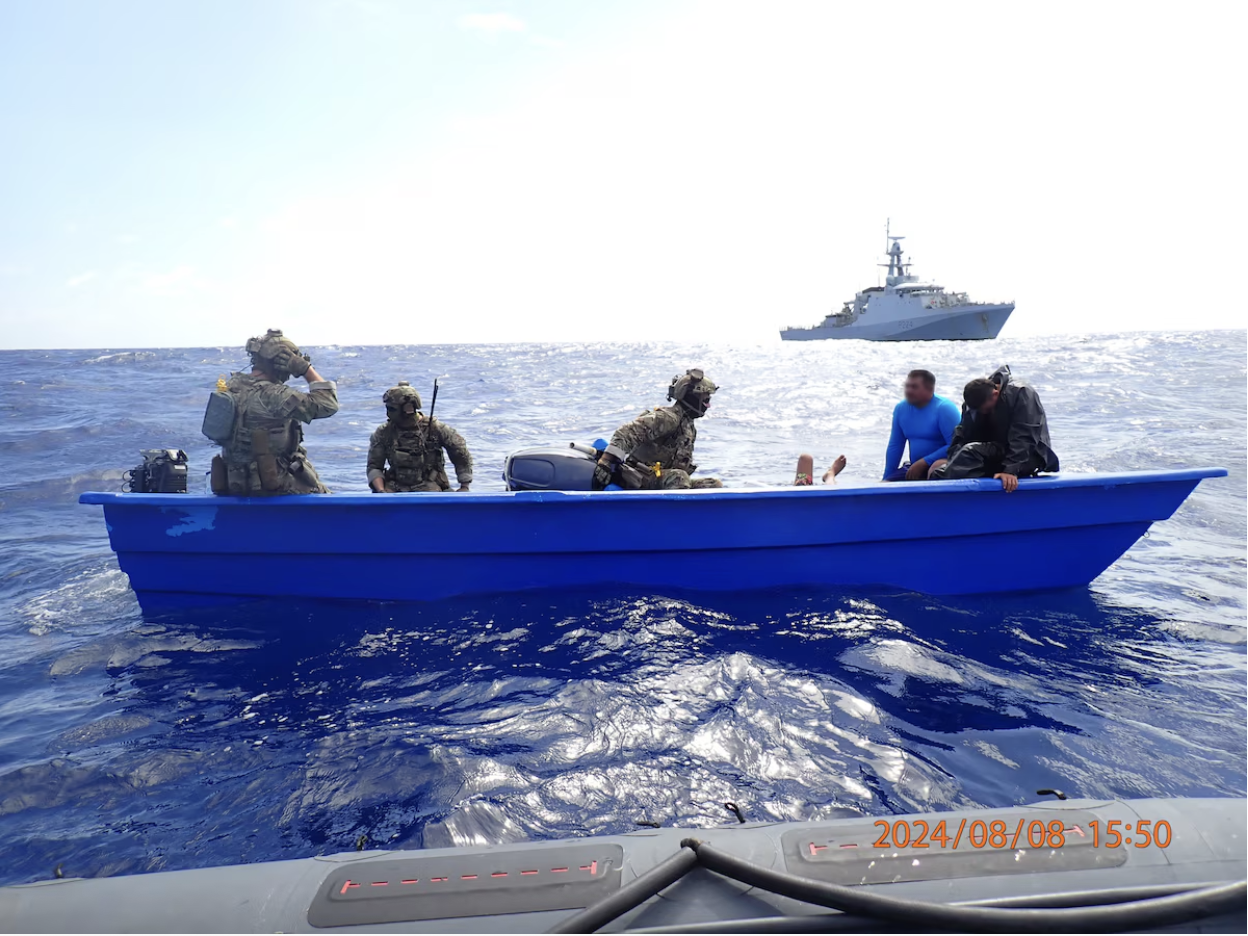Photo via SouthCom
***
On October 3, 2025, the United States government enacted its fourth known military strike so far on boats that had been classified as “narco-trafficking vessels,” which resulted in the killing of four people. This event is another escalation in an ongoing campaign against drug trafficking in the Caribbean that started earlier this year. Before this, there were three other strikes which led to a total death count of 15 in September alone. Together, these incidents have drawn international attention and have raised critical questions about the legality and motives of the Trump administration.
President Donald Trump has publicly declared that the United States is now in an “armed conflict” with drug cartel groups operating in the Caribbean. Under this new classification, the administration has characterized these groups as terrorist organizations. Smugglers affiliated with these terrorist groups are now labeled as “unlawful combatants.” This term grants a legal status that gives the US military responsibility in this growing conflict rather than just law enforcement intervention. By changing this classification, the Trump administration is turning away from previous U.S policy, which typically handled drug trafficking as a criminal issue through agencies like the Drug Enforcement Administration or Coast Guard.
These strikes have faced a lot of public backlash as people argue that the executive branch is overstepping its constitutional authority by using the military for law enforcement purposes. The Trump administration is using lethal military force without declaring a war zone or without explicit congressional approval. Additionally, the administration has failed to provide public evidence proving that the individuals on these vessels were actually members of designated terrorist drug cartels, or that the boats were transporting known narcotics or weapons that could become a legitimate terrorist threat. Without such public transparency and verification, it is easy to be skeptical about a potential international law violation.
The current socioeconomic situation in Venezuela is a critical component in understanding the drug trade in the Caribbean. For decades, the country relied almost entirely on oil exports to fuel its economy. But when global oil prices plummeted in 2011, Venezuela entered a recession that lasted seven years. Former Venezuelan President Hugo Chavez attempted to fix the crisis by printing more money, but this only produced drastic hyperinflation. The scale of Venezuela’s economic breakdown is one of the most severe in modern history and has caused 7.7 million Venezuelans to leave the country. Most of the remaining citizens in the country are living in extreme poverty, leading many to search for alternative means of income like smuggling drugs, fuel, animals, and even people. For many, this participation in illicit trade comes from a collective desperation that was caused systematically by the collapse of the economy and government in Venezuela.
In response to the U.S military attacks on these alleged drug smuggling vessels, the Venezuelan government has accused the Trump administration of using this “war on drug trafficking” as a political cover to justify aggression against Venezuela and its leader, President Nicolas Maduro. They argue that these strikes are not aimed at combating drug trafficking but are a part of a broader plan to destabilize the Maduro regime to assert democratic geopolitical dominance in the region.
While the motives of the U.S government are purely speculative, these strikes do reflect a dramatic expansion of military authority into an issue that historically, only criminal justice agencies dealt with. The Trump administration justifies this expansion as part of a necessary “war on terror.” Still, his reclassification of drug cartels as terrorist organizations blurs the lines between law enforcement and warfare, putting into question executive overreach, international legality, and the moral implications of using military force without transparency or Congressional approval.
***
This article was edited by Sofia Roshan Hope Gellada and Samuel Benton.
